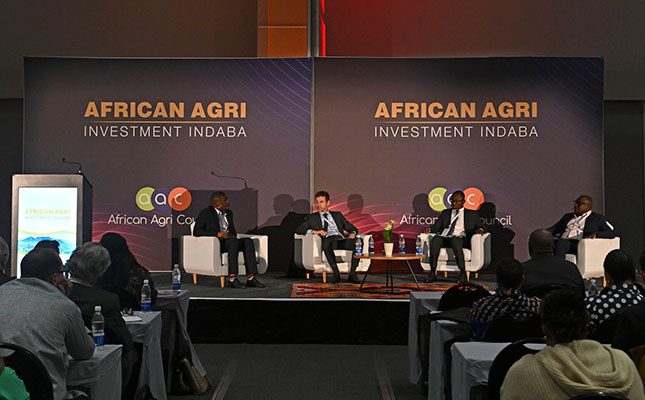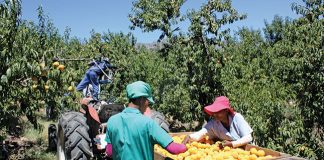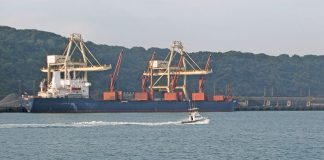
Photo: LinkedIn/African Agri Council
The high risk involved in primary, and especially smallholder production, was identified as one of the biggest barriers to financing, and in effect the development of Africa’s agricultural potential at the Africa Agri Investment Indaba.
The situation was worsened by the impact of the COVID-19 pandemic, which had led to enormous fiscal spending globally and subsequent high inflation that governments were trying to curb with interest rate hikes, Chris Hart, executive chairman of Impact Investment Group South Africa, said during his welcoming address.
The situation has increased agricultural production costs and made it more difficult for farmers to repay loans, while the interest rate shocks have also led to the fall of various banks, and made it more expensive and difficult to source resources to finance projects.
Simultaneously, food security has come under threat, with shortages of certain food types occurring sporadically even in developed countries, while logistics is being challenged by the green movement, which is leading to various other ramifications in the supply chain.
Hart said that everybody was talking about the potential of Africa to improve global food security, but the potential had been there for hundreds of years. The trick, rather, was to find a way to unlock the potential of agriculture in South Africa, he said.
Various role-players highlighted how they were overcoming banking and microfinancing challenges in the panel discussions that followed.
Hans Bogaard, manager of agribusiness at the Dutch entrepreneurial development bank FMO, spoke about the importance of partnerships to strengthen the value chain in Africa. Farmers, for instance, could pool resources together to obtain sufficient scale to satisfy market opportunities, while leveraging the skill of other players in the value chain.
Michael Boakye, agricultural sector lead of Ecobank, spoke about the importance of governments creating a more enabling environment through investments in agriculture, infrastructure and the development of policies, to allow the agricultural industry to grow and take advantage of export opportunities.
Cheyo Mwenechanya, head of agriculture banking at ZANACO, spoke about the way in which technology helped to alleviate risks by disseminating information, improving technical assistance, and enabling role-players to make better informed decisions.
Technology, for instance, could improve the resilience of smallholder farmers in the face of climate change by alerting farmers of climate-related risks, giving an indication of essential production practices that should be taken during specific times, such as when to plant and when to spray for specific diseases, and by helping to improve water and fertiliser use efficiency.
This message was echoed by Wendy Green, country head of Daystar Power Group South Africa, in the panel discussion that followed. She said technology would become an increasing enabler in the fight against climate change and the development of the carbon credit market.
She said that many farmers saw “the bigger picture” to shift from subsistence to commercial farming, but struggled to get there because of policy, financial and other challenges that were holding them back.
She also emphasised the importance of linking up with large-scale commercial farmers to help unlock their full potential and the market: “Farmers need to surround themselves with mentors and have a research mind-set with which they constantly look for solutions or ways to improve.”
In terms of electricity supply problems, Green encouraged agricultural role-players to invest in alternative energy sources to reduce their dependence on Eskom, as she foresaw that energy security would remain an issue for a while.
Thomas Meyer, senior investment manager industries and services at DEG South Africa, said that agriculture represented 25% of the gross domestic product in Africa, but only 5% of funding, because of the perceived risks and costs, especially when it came to the financing of smaller-sized projects.
Hedwig Siewertsen, head of inclusive finance at AGRA, said that the industry had to move past the green revolution to more sustainable farming through new technologies, more sustainable cropping and farming practices, the production of more nutritional food and less wastage, to create sustainable, climate-smart food systems.












